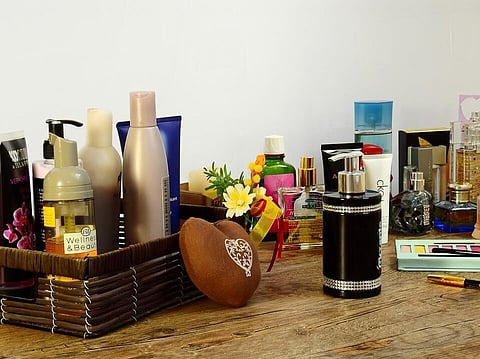
- Home
- NewsGram USA
- India
- न्यूजग्राम
- World
- Politics
- Entertainment
- Culture
- Lifestyle
- Economy
- Sports
- Sp. Coverage
- Misc.
- NewsGram Exclusive
- Jobs / Internships

– By Soha Kala
July 27, 2017: "I had a voice and opinion but they muted my sound/ probably because I was told 'boys only like girls who are fair and lovely' "- says 18-year-old Aranya Johar. These words of a young poet whose vehement poetry brought the entire Indian society obsessed with 'white' skin to a standstill.
In a country that believes 'fair' is 'lovely', it is by this simple logic that everybody else is ugly. We live in a society where women are obsessed with their western, whiter counterparts.
HISTORY (MIGHT) HAVE ANSWERS-
Adherence to white(er) overlords has been long associated white skin with power, status, and desirability among Indians, which is still reinforced by beauty magazines featuring foreign models. If an Indian face appears on these, it is obviously whitewashed.
We are brought up on a steady diet of dolls in only fair skin and fairness cream advertisements. The idea further transitions into media when matrimonial columns in newspapers and online websites are dominated by suffocating expectations, where age or caste is flexible but only if you're 'beautiful and fair' and celebrities endorse creams that can make you, including men, fair. (What happened to the tall, dark and handsome man?)
This Colorism, coined by Alice Walker, is perhaps even older than caste discrimination, pushing innumerable Indians to artificially lighten their skin, a phenomenon popularly known as,
Bleaching Syndrome – A conscious process of self- denunciation which reflects deep-set belief that fair skin is better, more powerful, and prettier.
This is not exclusively restricted to India, but also common in rest of Asia and Africa.
A BOOMING BLEACHING MARKET
The $950 million retail beauty and cosmetic industry in India attractively packages cosmetic products promising 'white beauty' and 'perfect nikhaar' (glow), purposely sold in 'white' casing. Then come vaginal creams to make it 'fair'.
However, what many people don't know is that they're laden with dangerous steroids.
A 2014 report by Centre for Science and Environment (CSE), a Delhi-based not for profit research and advocacy organization revealed presence of heavy metals like lead, cadmium chromium and nickel in popular beauty products including foreign brands, which can damage kidneys and cause skin discoloration, rashes and scarring, besides leading to psychosis and peripheral neuropathy among other things.
This desire for an 'ugly duckling to beautiful swan' transition perhaps, explains the thriving industry, and success of image editing softwares like Photoshop and Instagram filters.
However, the beauty landscape appears to be evolving. In a series of hard-hitting Facebook posts, actor Abhay Deol called out members of his own fraternity in May this year for endorsing fairness creams, labeling their claims false and demeaning. His posts caused uproar in the country, inspiring similar stories that have since trended on social media.
In a similar instance in 2016, actress Tannishtha Chatterjee had also posted a Facebook status after walking out of a television shoot following demeaning remarks on her skin tone. Her post had over 300 shares.
Recently, actor Nawazuddin Siddiqui also took a dig at the industry calling out its racist culture.
Till date, one of the most well-known empowerment and awareness programmes is the 'Dark is Beautiful' campaign that reinforces that every person is beautiful. With films like 'Pinky Beauty Parlour' now being made that question why women with lighter skins are coveted, and envied while the darker skinned ones are shunned, mocked and shamed, the issue is being repeatedly taken up by people.
Pinky Beauty Parlor, the film. Image source : YouTube
"Forget snow white, say hello to chocolate brown/ I'll write my own fairytale" are worded from Aranya's A Brown Girl's Guide to Beauty on YouTube that represent the progressive stand of the Indian youth on colorism.
Opinions and voices are coming forward thus raising a question, is the future 'dark'?
– by Soha Kala for NewsGram. Twitter @SohaKala
